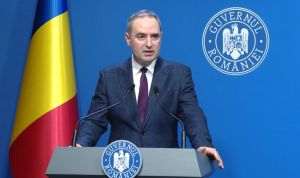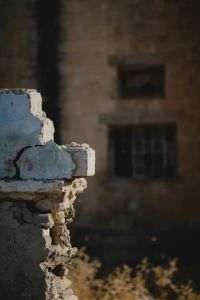Almost half of the ministers proposed yesterday by designated prime-minister Dacian Cioloş for the new government have either worked in European institutions, or in multinationals, which would not be a bad thing, if they haven't forgotten their roots and the national interest.
Incidentally or not, yesterday, Dacian Cioloş met with Jean-Claude Junker and with Donald Tusk, as written on his personal Facebook page: "This afternoon (ed. note: Saturday afternoon), together with interim prime-minister Sorin Cîmpeanu, we have had a meeting with European Commission president Jean-Claude Juncker and with the President of the European Council Mr. Donald Tusk who have made a stop in Bucharest on their way to Antalya where they attend the G20 summit".
Dacian Cioloş doesn't tell us what he talked about with the European officials, but it can be assumed that the list of new ministers was presented to the two.
After, over the last few days, the idea was being discussed that the new Government would be made up of technocrats, Dacian Cioloş yesterday said, when presenting the new government, that he has sought a "balance" between young people, with solid professional training, and people with significant experience, showing that one third of the people nominated as ministers are women.
He said: "I've strived to pick people with qualifications and experience (...) or even Romanians that work in the European administration, people that operate in civil society organizations. I've focused on people with vision, ideas and experience in management. (...) I've looked for professionals, wholesome, open for dialog".
The government nominated by Dacian Cioloş is made up of 21 members. Vasile Dâncu and Costin Grigore Borc have been proposed as deputy prime-ministers.
The members of the new Executive in Bucharest are: Lazăr Comănescu - minister of Foreign Affairs; Petre Tobă - minister of Internal Affairs; Mihnea Ioan Motoc - minister of National Defense; Vasile Dâncu - minister of Regional Development and Public Administration; Anca Dana Dragu Paliu - minister of Public Finance; Costin Grigore Borc - minister of the Economy, Trade and Tourism; Achim Irimescu - minister of Agriculture and Rural Development; Victor Vlad Grigorescu - minister of Energy, Small and Medium Enterprises and Business Sector; Adrian Curaj - minister of National Education and Scientific Research; Vlad Alexandrescu - minister of Culture; Aura Carmen Răducu - minister of European Funds; Cristina Guseth - minister of Justice; Cristina Paşca Palmer - minister of the Environment, Water and Forests; Claudia Ana Moarcăş - minister of Labor, Family, Social Security and the Elderly; Marius-Raul Bostan - minister for the Information Society; Andrei Baciu - the minister of Healthcare; Elisabeta Lipă - minister of Youth and Sports; Marian Dan Costescu - minister of Transports; Victoria-Violeta Alexandru - delegate minister for Social Dialogue; Dan Stoenescu - delegate minister for relations with Romanians abroad; Ciprian Bucur - delegate minister for the Relation with the Parliament; Ioan Dragoş Tudorache - the head of the Chancery of the Prime Minister.
According to some social-democratic sources, also discussed at the meeting between Dacian Cioloş and the PSD leaders was the possibility of a minister backed by the social-democrats being part of the government, in exchange for the support of the PSD. The name being discussed was that of sociologist Vasile Dâncu, who has remained close to Liviu Dragnea after his departure from the PSD.
Yesterday, Dacian Cioloş said that he has selected Vasile Dâncu for his team of ministers (both for his position of minister of Regional Development and Public Administration, as well as for the position of deputy prime-minister) for the fact that he has "professional experience and vision", not because he was a former member of the PSD.
The presence in the government of managers from the private sector, such as Cosmin Borc, CEO of Lafarge România (a company which merged with Holcim this year) can not go unnoticed. Nominated for the positions of deputy prime-minister and minister of the Economy, Borc was a special assistant of former president Ion Iliescu from the National Peasants' Party and the head of the Chancery of Prime-minister Radu Vasile, during the term of president Emil Constantinescu. He was also the personal secretary of Corneliu Coposu, according to press sources.
Dacian Cioloş said that he wants to use the experience of people coming from outside the administrative structures, such as the one in the area of civil society.
Cioloş is close to France, as his wife is French Valerie Cioloş-Villemin, whom some voices claim she is the niece of former minister French foreign affairs minister Michel Barnier.
When asked if he was going to replace the state secretaries, the nominated prime-minister said that he has not come to bring change for the sake of change, and that he cannot make that kind of decisions from the get go, without an assessment.
According to the announced schedule, today and tomorrow would take place the hearings of the ministers nominated in the specialized commissions in the Parliament, and then the investiture vote in the joint session of the Chamber of Deputies and the Senate.


























































